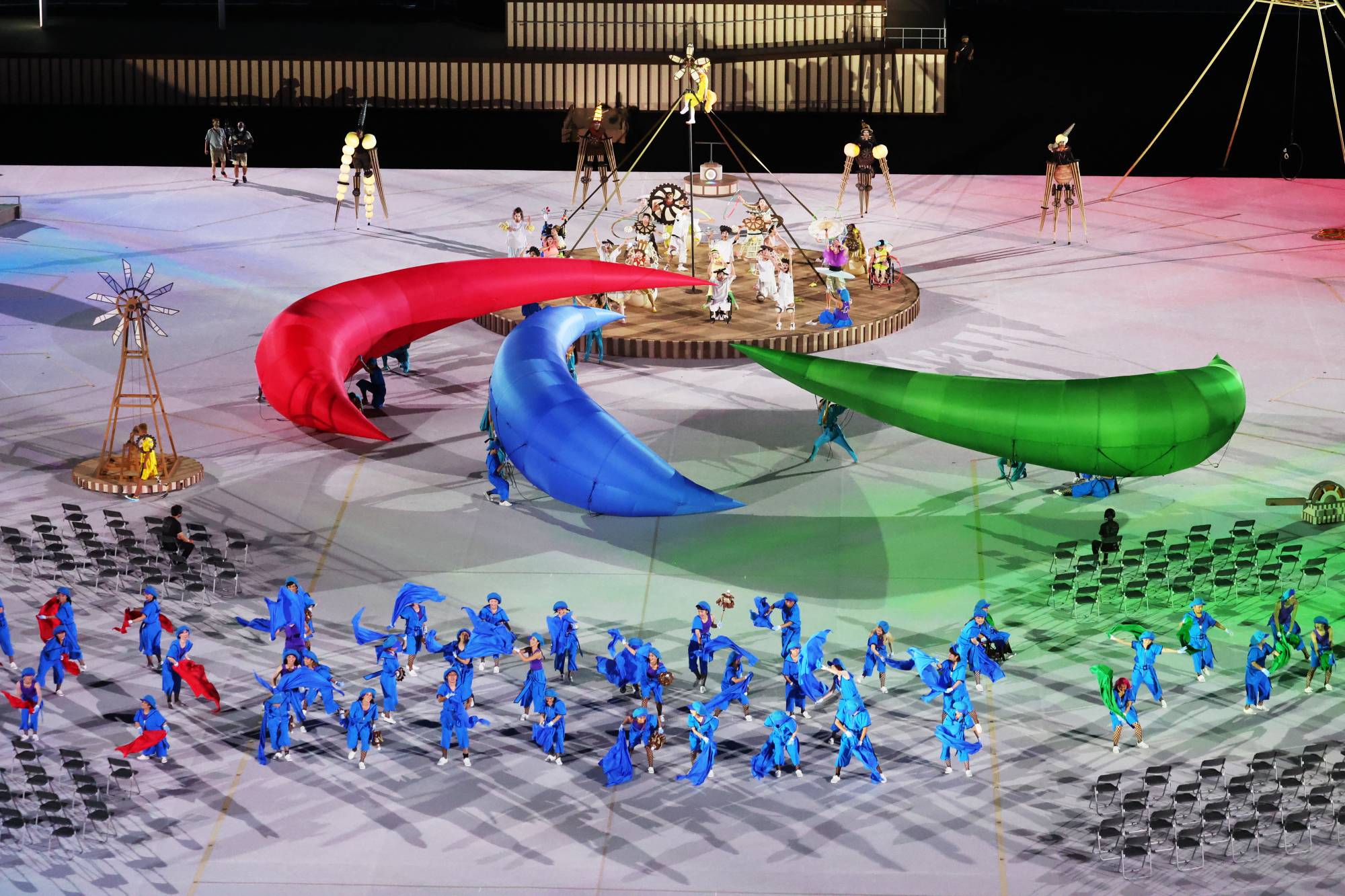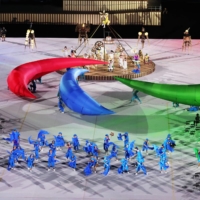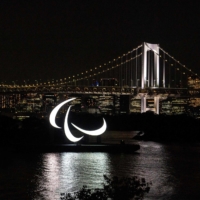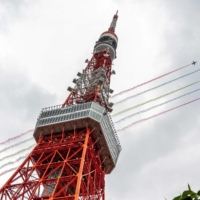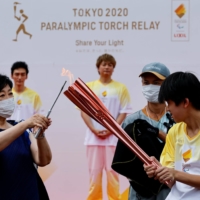The most important Paralympic Games of all time — at least according to International Paralympic Committee President Andrew Parsons — are finally underway after a one-year wait.
Athletes from across the globe gathered to celebrate the long awaited start of the 2020 Tokyo Paralympics during the Games’ opening ceremony on Tuesday night at the National Stadium. Emperor Naruhito was also in attendance, sitting beside Parsons as the festivities began. International Olympic Committee President Thomas Bach was also present.
“I cannot believe we are finally here,” Parsons said during the opening ceremony. “Many doubted this day would happen. Many thought it impossible. But thanks to the efforts of many, the most transformative sport event on Earth is about to begin.”
The Paralympics arrive on the heels of an Olympic Games where Japan enjoyed its best-ever performance, claiming 27 gold medals — the third-most at the Games — and 58 overall. The nation’s Paralympians, led by wheelchair tennis great Shingo Kunieda, will try to follow suit and erase the bitter memories of 2016, when Japan left the Rio Paralympics with no gold medals.
"Every one of the athletes has courage and determination and I think they're going to do their best on the world's highest stage," said Kunieda, the captain of the Japanese delegation. "I hope everyone in Japan will support the Paralympic team like they supported the Olympics.”
Japan was represented by 104 athletes from across 15 sports during the opening ceremony’s Parade of Nations.
Mami Tani served as one of Japan’s flag bearers more than eight years after helping the nation win the right to host the games as one of the Tokyo 2020 bid ambassadors during the 125th IOC Session in 2013. Tani, who competed in the long jump at the 2004, 2008 and 2012 Paralympics, will compete in triathlon during these Games.
“I’m going to be competing in the triathlon for the first time, and I’m feeling a mix of anxiety and anticipation,” she said. “I want to give it everything I’ve got and reach the finish line with a smile.”
The Paralympics open at a time when new COVID-19 cases are on the rise and with Tokyo under a state of emergency.
The start of the Games makes Tokyo the first city to host the Paralympics twice. Tokyo also hosted in 1964, when the event was known as the 13th International Stoke Mandeville Games.
The ceremony opened with performances by the Crew, a group consisting of 100 people of varying ages, including some with impairments. Transgender celebrity Haruna Ai was among them and was front and center during the opening performance.
The opening ceremony utilized an airport motif and the Crew was soon replaced by performers clad in hats with propellers attached to the top. The Para Airport, as it was called, was meant to symbolize a diverse hub where people of varying backgrounds mix together.
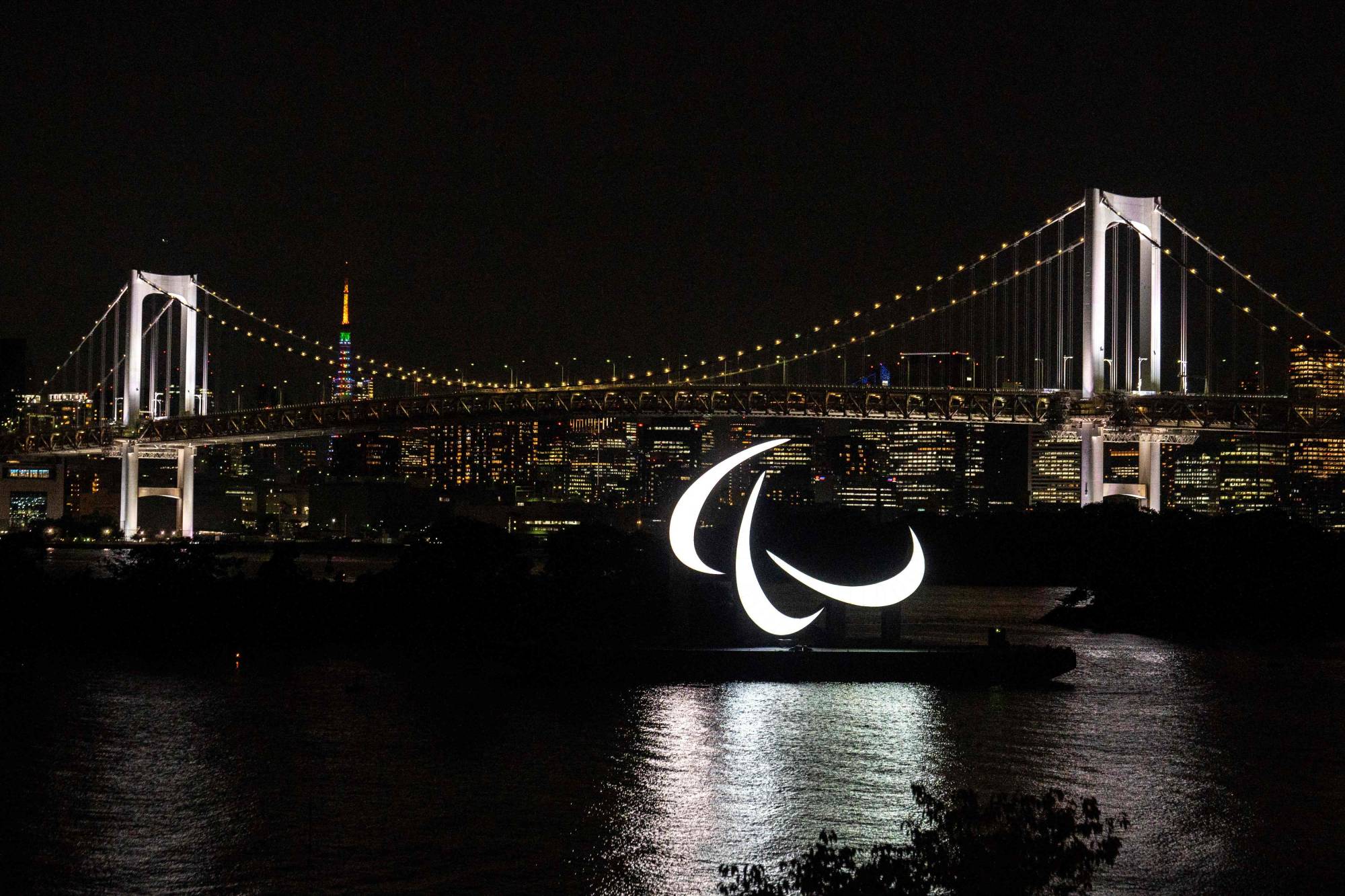
The focus then shifted to the athletes, who participated in the Parade of Nations as the performers danced around them.
Like the Olympians who came before them, the Paralympians were greeted by silence and empty seats, as concerns about COVID-19 led organizers to bar fans from most events.
Afghanistan was included in the parade despite having no athletes participating. The IPC said the unrest in the nation made it impossible for them to safely transport Afghanistan’s two Paralympic hopefuls to Tokyo. The Afghan flag was carried by a volunteer wearing a Tokyo 2020 shirt.
Yui Wago, a 13-year-old girl who uses a wheelchair due to a congenital disorder, was the star of the opening ceremony. Wago made multiple appearances throughout the night as an airplane with one wing that gradually built up the courage to fly.
“The airplane only has one wing. I also can’t use my left hand much either, and mainly rely on my right,” she said in comments released by the organizers. “That was something we had in common. On the other hand, the little airplane doesn’t have the courage to fly, whereas I’m the type to just give things a go, so in that sense we are different.”
Famed Japanese guitarist Tomoyasu Hotei also made an appearance, performing with a group that included musicians with impairments. Hotei played during the closing ceremony of the 1996 Olympics in Atlanta and has performed alongside famous bands such as The Rolling Stones.
Parsons called these the most important Paralympics ever due to the disruptions caused by the COVID-19 pandemic, the threat the virus still poses and the impact it has had specifically on people with disabilities have given added weight to these Games, which are scheduled to run from Tuesday until Sept. 5.
“Sports were not, of course, exempt from the COVID-19 pandemic and we have faced many restrictions,” para taekwondo athlete Shoko Ota said during a news conference Sunday.
“We focused on thinking about what we could do day by day to get to the Games. Training after days of not being able to — with restrictions such as the state of emergency — made me realize again how fun sports are.”
Athletes, who have had to endure a one-year delay and then further doubts about whether the Games would actually take place, will have a chance to see the fruits of their labor when competition begins Wednesday.
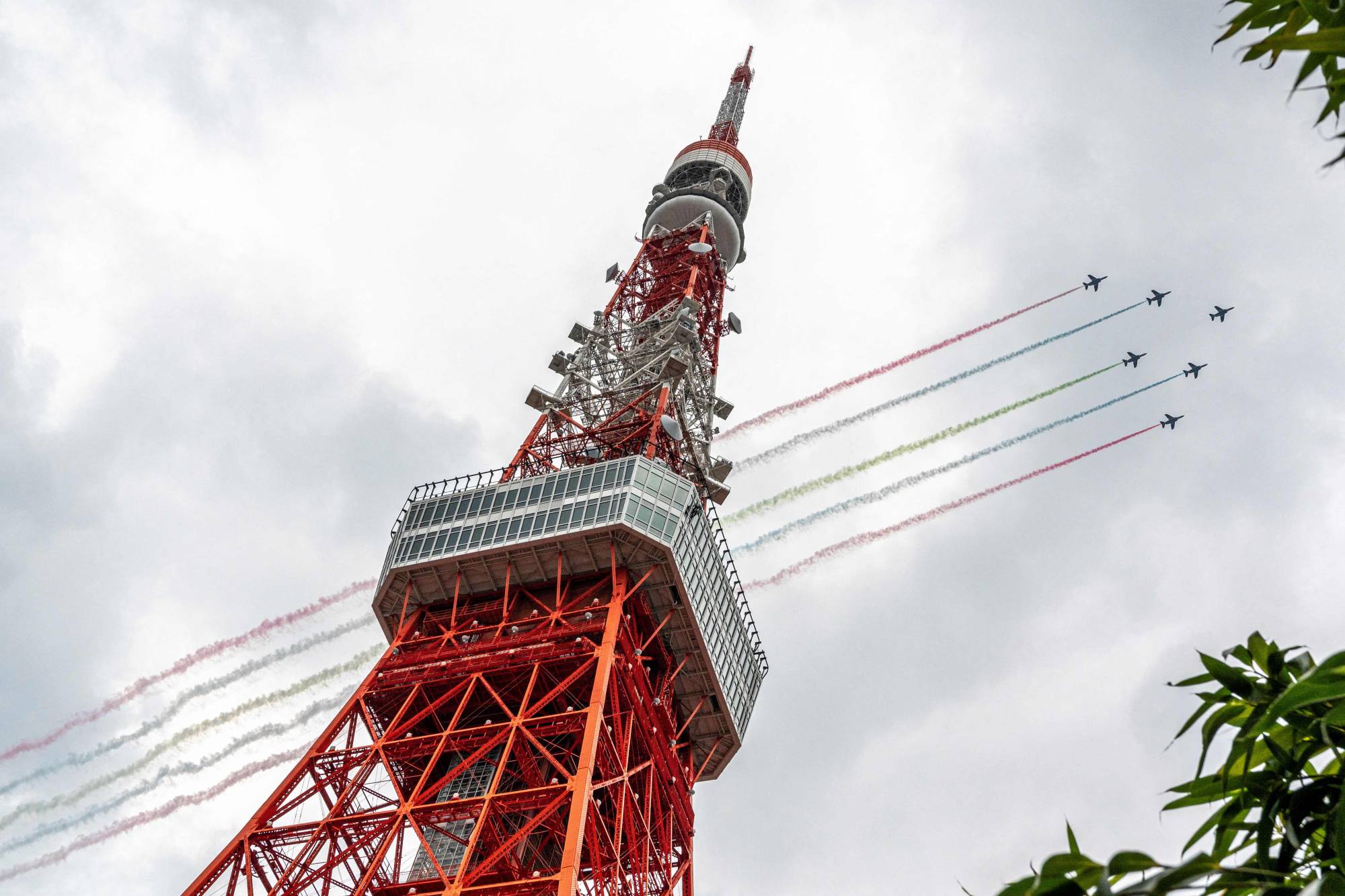
“Ever since I got to the airport I’ve been full of excitement because we’ve been focused on this,” Mexican powerlifter Amalia Perez said Sunday. “Right before we arrived there was another wave (of infections) and we were worried the Games wouldn’t happen. Now that we’re here, we need to take care of ourselves and follow the rules and make sure these Games are a success.”
The Tokyo Paralympics will host a record number of Paralympians, according to Craig Spence, the IPC’s chief brand and communications officer.
“We’re going to have 4,403 athletes competing here over the next 12 days,” Spence said Tuesday morning. “That is a record, the most number of athletes ever to compete at a Paralympic Games.
“To achieve that, bearing in mind how hard it has been for many National Paralympic Committees to get athletes to competitions in the last 20 months, is a remarkable achievement. The previous record was 4,328, which was set at the Rio 2016 Paralympic Games.”
Japan’s total delegation includes 254 athletes across 23 disciplines.
“The Tokyo Paralympics are my third Games,” said wheelchair tennis player Yui Kamiji, who earned bronze in women’s singles at the Rio Games in 2016.. “I’m going to play as hard as I can and try to win a medal.”
While there were coronavirus infections among people connected to the Olympics — including athletes — the event completed its run with no major disruptions. Now Paralympic organizers will try to repeat that feat.
Tokyo Organising Committee spokesman Masa Takaya updated the testing numbers pertaining to the Games hours before the opening ceremony.
“Since July 1 until Aug. 22, there were 51,000, nearly 52,000, airport tests conducted,” he said. “Among those, 49 cases were found to be positive. The positivity rate is 0.09%.”
Total screening tests over the same period stood at nearly 767,000, with the number of positive results totaling 236 — meaning the positivity rate was 0.03%.
Still, these Paralympics, like the Olympics that preceded them from July 23 to Aug. 8, will take place under the shadow of COVID-19 and with the highly infectious delta variant making the situation even more serious.
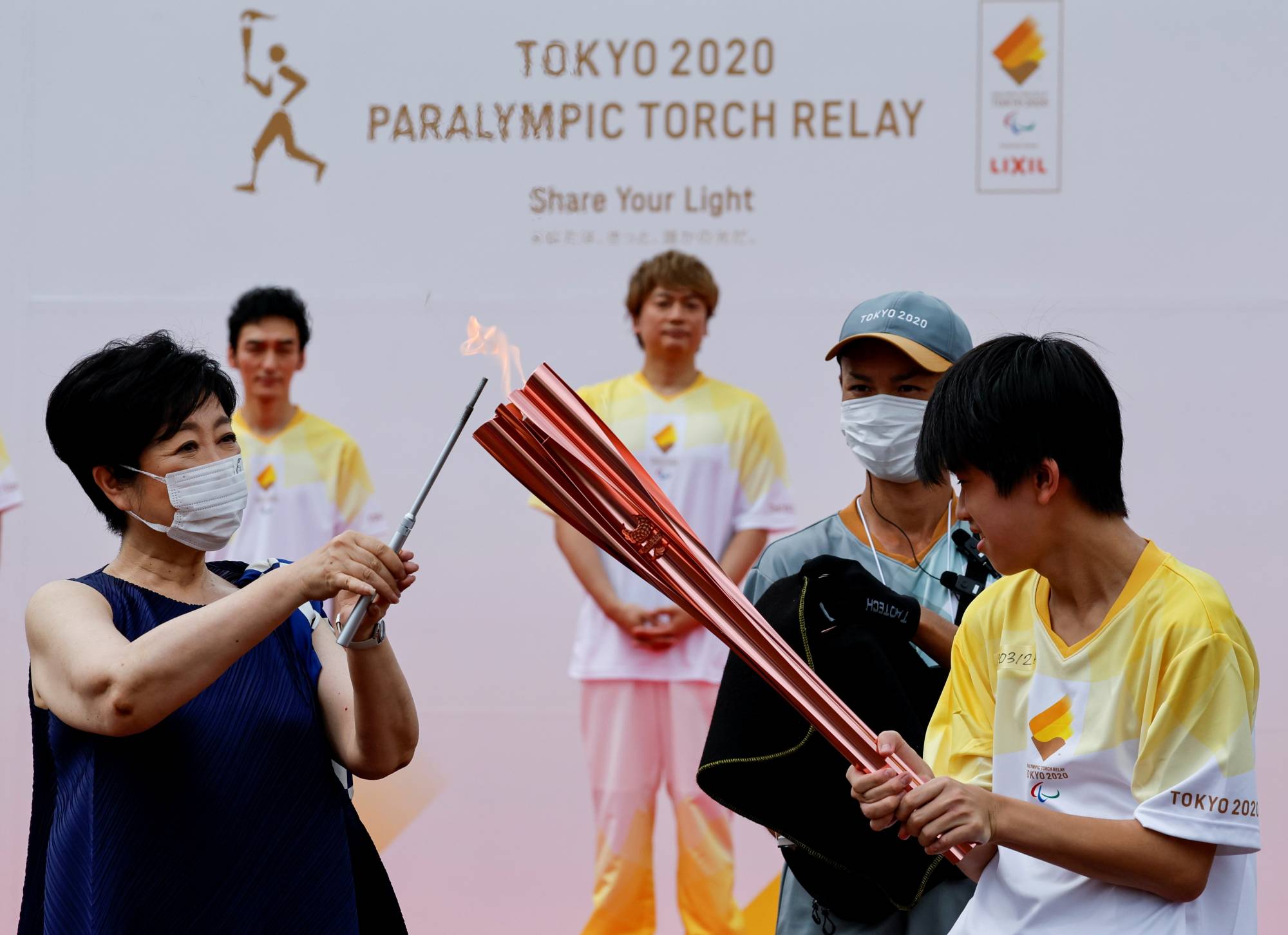
“We thank our hosts for trusting we can deliver safe Games for the athletes and officials, but also for Japanese society,” Parsons said.
Officials will again lean on the so-called playbooks, the organizing committee’s guidelines for preventing the spread of the virus, as a way to keep both athletes and the general public safe.
There are, however, plans to allow schoolchildren to attend some events. But many people, including Shigeru Omi, chairman of the government subcommittee on the nation’s COVID-19 response, have questioned the wisdom of such a program.
"This concept was presented to the IPC by the Japanese authorities in a four-party meeting last week,” Spence said Saturday. “We asked if it could be done safely and they said yes.
“We wouldn’t support the idea if it couldn’t be done safely. It is the same with the Paralympic Games. We wouldn’t be sitting here if we didn’t believe we could deliver the Games safely.”
Even amid the spread of the coronavirus, athletes and officials are hopeful that the Games can bring more attention to those with impairments and lead to a society that is more understanding of their needs — especially during the current pandemic.
"Persons with disabilities have been disproportionately affected by the pandemic around the world," Parsons said in an interview with Kyodo News on Aug. 19. "Different societies across the world have failed to protect them, have failed to provide them with the necessary services to protect them from the pandemic.
"We believe persons with disabilities have been left behind. That is why these Games are not just important to have, but they are needed from the perspective of the 1.2 billion persons around the world."



